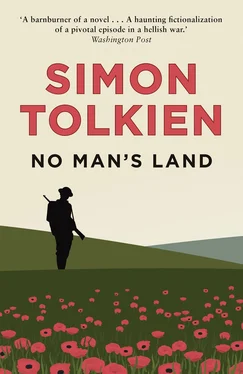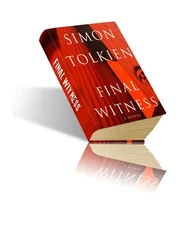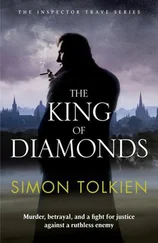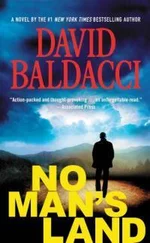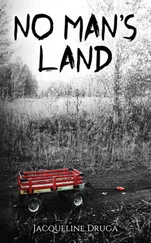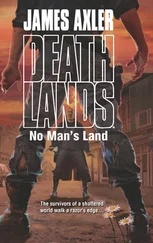Ernest laughed and Adam joined in, relaxing for the first time in as long as he could remember. Soon the laughter took him over and he had to sit down on the bed opposite Ernest, holding his sides. And that’s how his father found them when he came upstairs with his bag.
‘Good,’ he said. ‘You two’ll be friends, I think, and I’m glad of that.’
‘Who made ten thousand people owners of the soil, and the rest of us trespassers in the land of our birth?… Where did the table of that law come from? Whose finger inscribed it?’
David Lloyd George, Speech in Newcastle, 9 October 1909
Chapter Four
January 1911
The next day, Daniel and Adam went on the bus to Gratton, the nearest town, to visit the board school. He sat in a room full of dusty books and completed an exam which he found easy – the standard here seemed lower than in London, and by the end of the day their business was done. There would be no fees to pay; all Adam had to do was buy his own textbooks and pay for the bus fares, and work hard.
‘Your boy’s got brains,’ said the headmaster, shaking Daniel’s hand. He was an earnest-looking man with intense grey eyes and an evident sense of mission. ‘He’ll go far if he stays the distance.’
‘Don’t worry,’ said Daniel, looking pleased. ‘I’ll make sure he does that.’
‘What does he mean – stay the distance?’ asked Adam as they waited in the queue at the bus stop.
‘Most children leave school even if they have the chance of staying on. Times are hard and there’s pressure from their families to have the extra income, and then they want to have their own money too.’
‘Like Ernest?’ said Adam.
‘Yes. Edgar has bought his house and that means the family needs more. The rent we’re paying will help too – my cousin’s a generous man but he knows which side his bread’s buttered.’
‘Don’t you trust him, Dad?’ asked Adam. There was something in his father’s voice that he had picked up on – an anxiety, an uncertainty perhaps about the future. Adam couldn’t put his finger on it but he knew it was there.
‘I don’t know,’ said Daniel meditatively. ‘Edgar’s strong, and the other miners look up to him. I can tell that. And he wants to change their lives for them, just like he’s changed his own. But he doesn’t trust himself to be their leader; he thinks you need book learning for that, which is where I come in. I just hope he hasn’t misjudged me.’
It was dark when they got back to Scarsdale and rain was in the air, blown here and there by an indiscriminate wind that carried coal dust on its back up from the slag heap down below where a tangle of lights lit up the pithead. At the station Adam could see trucks on the sidings standing full of bright wet coal glistening in the moonlight, and by the doors of the miners’ houses the rainwater was washing away the early shift times written in chalk on the knock-up slates. Daniel told him that they were there for the knocker-upper, an old man who rode round the streets of the town on a bicycle in the early mornings, waking up the miners by tapping on their windows, using a long pole with wires attached.
In the house at the end of Station Street it was bath night. The galvanized iron tub that Adam had noticed hanging on a hook outside the back door when he went out to use the privy in the morning had been dragged into the living room and filled with hot water which Edgar’s wife had boiled up laboriously in the two kettles by the fire. And one by one the men of the family took turns bathing, scrubbing their pale bodies with Watson’s Matchless Cleansing Carbolic, although it was Annie’s job to wash their backs. Sitting out of the way in the corner of the room, Adam was touched to see how tenderly she ran the cloth across her husband’s shoulder blades, dabbing at the multitude of pale blue scars like tattoo marks where the coal had lodged under his skin. And then at the end Adam and Ernest carried the bath outside to pour away the inky-black water and leave it ready for the laundry work to begin the next day.
Further at the back, beyond the privy and the ash pit, a pig grunted in its makeshift sty. Perhaps it didn’t like the rain – Adam didn’t know. There had been pigs in the back gardens in London too, fattened through the year for slaughter in the autumn, but Adam had avoided them, pained by the certainty of their coming death. He felt it an ill omen that there should be another here and hoped that he and his father would have ‘found their feet’ and moved to their own house before killing time came round.
Back in the warmth of the house, Edgar, swathed in clean towels, was squatting in front of the fire, toasting brown sugar on a spoon until it turned black. Adam watched as he took a frying pan, added water and flour and mixed them with the burnt sugar for gravy. The movements of his big powerful hands were quick and fluid – hands that could make things but could unmake them too. He caught Adam’s eye and smiled.
‘Come over ’ere, lad. There’s summat I wanna show thee.’
He reached up above the mantelpiece and took down a small round tin box about two inches in diameter and six inches deep and turned it over in his fingers a moment before handing it to Adam.
‘Hang on to that and I’ll tell thee its story,’ he said. ‘Thy grand-uncle, thy father’s uncle and my father, ’e made that. Forty year ago when ’e wor workin’ in the Marley Main mine south o’ here, and the pit went up wi’ an explosion on account o’ they was usin’ matches to light their lamps – silly ignorant fools that they were – an’ one caught the firedamp that they ’ave underground. Firedamp – it’s a gas. Methane they calls it too,’ he added, catching the puzzled look on Adam’s face. ‘Any road, a lot o’ boys thy age lost their lives that day, but two ’o them survived by a miracle, trapped behind the fallen rock. An’ my dad, ’e drilled a borehole through the stone so ’e could pass this ’ere tin through to ’em with food and water for ’em to ’ave while they were diggin’ ’em out.’
‘And did they?’ asked Adam, looking down at the old tin in his hand, wondering at how Edgar had transformed it from an apparently worthless object into something so precious in just a few sentences.
‘Did they wot?’
‘Dig them out. Did they survive – the two who were trapped?’
‘One o’ ’em did, t’other didn’t. You takes your chances, but the point is that we stick together, us miners. We ’ave to,’ he added, glancing over at Daniel, who was sitting reading the newspaper at the table. And Adam sensed suddenly that Edgar had been telling the story to his father just as much as to him.
Ernest began his shift late on Monday and so there was time for him to walk with Adam to the bus. The stop was in a square across from the station where the village shop and pub and the Miners’ Institute were also located. In the middle a set of rusty swings stood on an uneven patch of worn-out grass – the town’s sole concession to the concept of small children’s entertainment. On warmer days mothers sat on the wooden benches and gossiped, resting their legs before they walked home, and teenagers came here too when they weren’t working, the girls watching the boys and the boys watching the girls and all of them pretending that they were doing nothing of the kind, gathered together in their separate self-conscious groups on opposite sides of the green.
The bus was late and some boys came over when they saw Ernest. One of them stood out from the rest. He was thin and wiry with short hair cropped tight to his skull, dressed in pit clothes that seemed too big for him, as if he was wearing his father’s cast-offs, and he walked with an almost imperceptible limp, slightly favouring his left leg over his right. He was looking at Adam, not Ernest, and Adam sensed the boy’s hostility. It seemed personal, as if he already knew who Adam was and didn’t like what he knew.
Читать дальше
